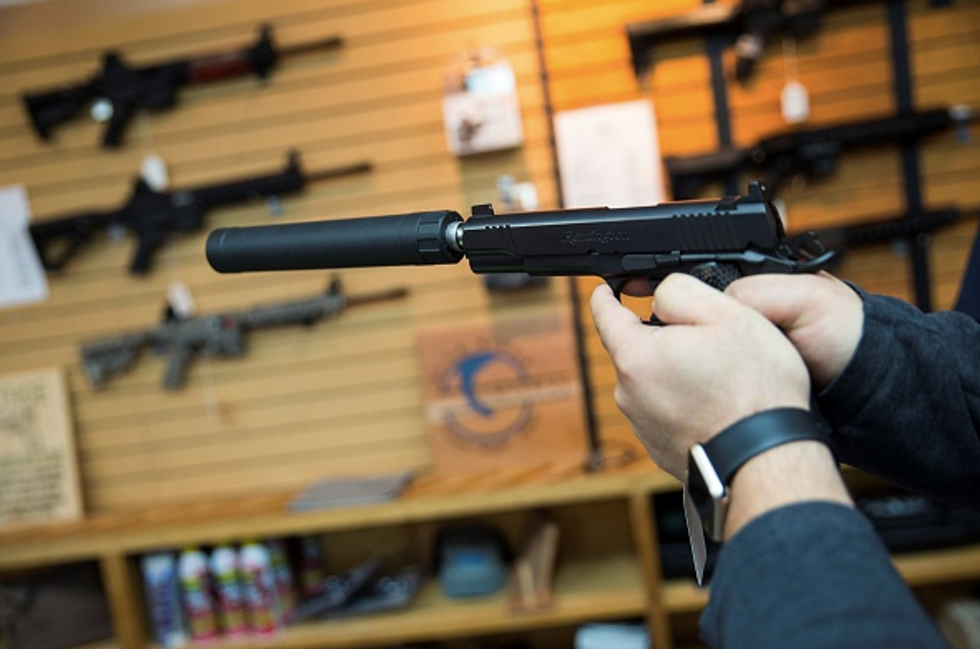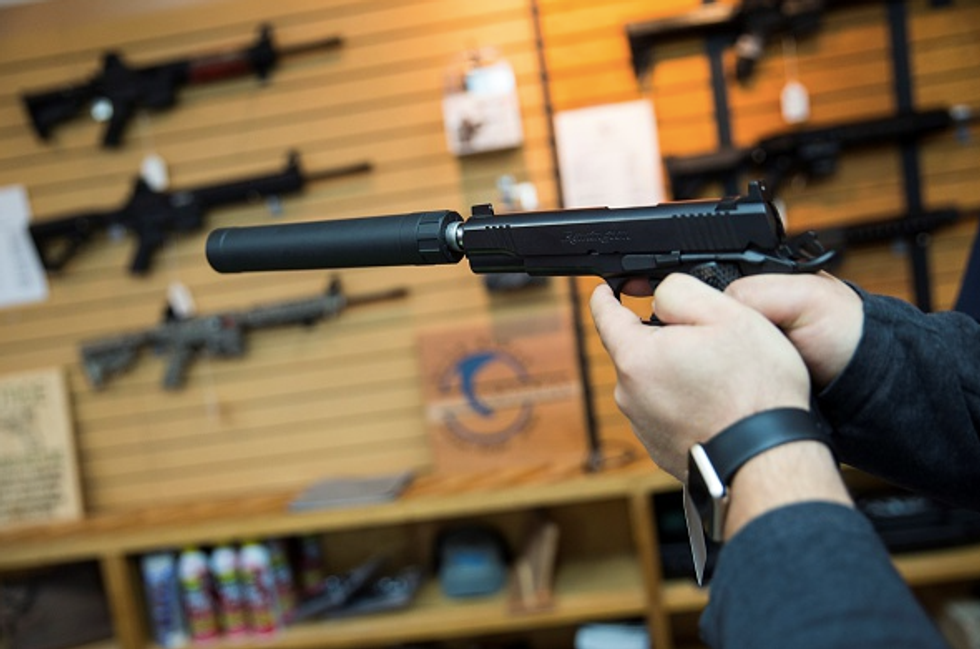
A customer tries out a Remington 1911 equipped with a silencer at Blue Ridge Arsenal in Chantilly, Va., USA on January 9, 2015. (Samuel Corum/Anadolu Agency/Getty Images)

Academia is generally viewed as a liberal bastion, but one survey finds that despite their broad political leanings, college professors who have studied the impact of guns on society believe ownership of firearms makes the country safer.
The academic survey by Gary A. Mauser, a professor at Canada’s Simon Fraser University Beedle School of Business, and U.S. economist John Lott, president of the Crime Prevention Research Center, finds that the attitude of academics actually corresponds with that of the general public.
“Prior to the 1990s, the debate was about how bad guns were,” Lott told TheBlaze. “Since that time, the debate among economists and criminologists has moved to how large the benefits are. That has coincided with a change in public opinion.”

The study narrowed the survey to professors of economics and criminology.
Lott, who has taught at Yale University, the University of Chicago and the Wharton School of the University of Pennsylvania, is the author of “More Guns, Less Crime.”
The survey found that professors provide pro-gun answers on almost every response. But there was a consistent split with economists being more pro-gun than criminologists.
Academics overall believed by a 40-point margin that concealed handgun permits reduced murder rates. Among economists, that was a 12-1 margin, but only 2-1 among criminologists.
But on a key question, the two disciplines differ, as 83 percent of economists believe guns are more frequently used for self-defense than for crime, while 51 percent of criminologists think guns are more often used in the commission of crime.
“Economists are more inclined to believe if benefits outweigh the costs it will encourage more of something, while criminologist tilt toward a net benefit of gun ownership but are still divided,” Lott said. “Economists and criminologists also have different world views. Economists think deterrence matters. Criminologists are less likely to think deterrence matters.”
Lott added that political ideology plays some role. He said the study didn’t ask professors about their partisanship, but noted surveys show Democrats outnumber Republicans by 3-1 among faculties in economics, and Democratic faculty outnumber Republicans 37-1 in sociology. Criminology is a subfield of sociology.
This was not a random survey, as Lott and Mauser contacted 130 academics that conducted peer-reviewed research on guns in the last 15 years, and 74 answered -- a 57 percent response rate. Of that, 39 respondents published work in criminology journals about guns, while 35 had published research in economic journals about firearms.
Lott believes scholarly opinion is now in line with the majority of the public, but says that that fact is not represented in most media coverage.
“There are at least some defensive news stories in the media now. Earlier, stories where guns were used for defense were never covered,” Lott said. “There is still a bias against guns, but some information is out there as opposed to zero. Much of the media still gives a misimpression. When the New York Times interviews an academic for a gun-related story, they can’t seem to find one who says guns make people safer.”